The CHS is pleased to announce the Fellows in Hellenic Studies and CHS-DAI Joint Fellows for the 2017-18 academic year! Please visit the CHS website to view the official announcement.
 Richard H. Armstrong is Associate Professor of Classical Studies in the Honors College and The Department of Modern and Classical Languages at the University of Houston. He received his BA from the University of Chicago and his M. Phil. and Ph. D. from Yale University. He has published extensively on the reception of ancient culture, translation studies, and the history of psychoanalysis. He is the author of A Compulsion for Antiquity: Freud and the Ancient World (Cornell) and coeditor with Paul Allen Miller of the Ohio State UP series, Classical Memories / Modern Identities. His forthcoming publications include Companion to the Translation of Greek and Latin Epic (Blackwell) with A. Lianeri, and Theory and Theatricality: Classical Drama in the Age of Grand Hysteria (OUP).
Richard H. Armstrong is Associate Professor of Classical Studies in the Honors College and The Department of Modern and Classical Languages at the University of Houston. He received his BA from the University of Chicago and his M. Phil. and Ph. D. from Yale University. He has published extensively on the reception of ancient culture, translation studies, and the history of psychoanalysis. He is the author of A Compulsion for Antiquity: Freud and the Ancient World (Cornell) and coeditor with Paul Allen Miller of the Ohio State UP series, Classical Memories / Modern Identities. His forthcoming publications include Companion to the Translation of Greek and Latin Epic (Blackwell) with A. Lianeri, and Theory and Theatricality: Classical Drama in the Age of Grand Hysteria (OUP).
 Mary R. Bachvarova is Professor in the Department of Classical Studies at Willamette University, Oregon. She received her A.B. in Classics from Harvard/Radcliffe College and her PhD from the Committee on the History of Culture at University of Chicago. Her research focus is comparative religion and literature in the ancient East Mediterranean. She is the co-editor of two volumes, Anatolian Interfaces: Hittites, Greeks and Their Neighbors (with B. J. Collins and I. C. Rutherford, 2008) and The Fall of Cities: Commemoration in Literature, Folk Song, and Liturgy (with D. Dutsch and A. Suter, 2016), and the author of From Hittite to Homer: The Anatolian Background of Greek Epic (2016). Whereas in her previous monograph she focused on how epic narratives were carried across geographic and linguistic barriers in the ancient eastern Mediterranean, in the monograph currently in progress, Calling the Gods: How Cult Practices Moved across Space and Time in the Ancient Eastern Mediterranean, she focuses on the prayers, making visible the processes of transmission and reworking of verbal art by focusing on archaeologically salient items and practices presented in the texts as effecting the gods’ movement.
Mary R. Bachvarova is Professor in the Department of Classical Studies at Willamette University, Oregon. She received her A.B. in Classics from Harvard/Radcliffe College and her PhD from the Committee on the History of Culture at University of Chicago. Her research focus is comparative religion and literature in the ancient East Mediterranean. She is the co-editor of two volumes, Anatolian Interfaces: Hittites, Greeks and Their Neighbors (with B. J. Collins and I. C. Rutherford, 2008) and The Fall of Cities: Commemoration in Literature, Folk Song, and Liturgy (with D. Dutsch and A. Suter, 2016), and the author of From Hittite to Homer: The Anatolian Background of Greek Epic (2016). Whereas in her previous monograph she focused on how epic narratives were carried across geographic and linguistic barriers in the ancient eastern Mediterranean, in the monograph currently in progress, Calling the Gods: How Cult Practices Moved across Space and Time in the Ancient Eastern Mediterranean, she focuses on the prayers, making visible the processes of transmission and reworking of verbal art by focusing on archaeologically salient items and practices presented in the texts as effecting the gods’ movement.
 Klaas Bentein (PhD 2012) is currently employed as a post-doctoral research fellow at Ghent University, Belgium. He wrote his dissertation on the Ancient Greek verbal system, which has recently been published as Verbal Periphrasis in Ancient Greek: Have- and Be- Constructions (Oxford University Press, 2016). At the CHS, he will be working on a new book project, which concerns the language of documentary (non-literary) writing. To be more specific, he will analyze to what extent morpho-syntactic variation in Post-classical and Byzantine letters, petitions and contracts can be connected to the different social contexts of the documents. He has published preliminary studies on this topic in journals such as Classical World, Journal of Greek Linguistics, and Philologus.
Klaas Bentein (PhD 2012) is currently employed as a post-doctoral research fellow at Ghent University, Belgium. He wrote his dissertation on the Ancient Greek verbal system, which has recently been published as Verbal Periphrasis in Ancient Greek: Have- and Be- Constructions (Oxford University Press, 2016). At the CHS, he will be working on a new book project, which concerns the language of documentary (non-literary) writing. To be more specific, he will analyze to what extent morpho-syntactic variation in Post-classical and Byzantine letters, petitions and contracts can be connected to the different social contexts of the documents. He has published preliminary studies on this topic in journals such as Classical World, Journal of Greek Linguistics, and Philologus.
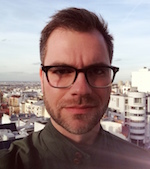 Nicolas Bertrand studied classics in Strasbourg and in Paris, at the Sorbonne University and the École Normale Supérieure (2001–2005). He specializes in the analysis of Homeric texts, with a special interest in the working of Homeric traditional poetics. Linguistics became more and more crucial in his research as he wrote his PhD dissertation on word order in the Homeric poems (2005–2010). While pursuing his inquiries on Homeric and, more widely, Ancient Greek syntax and pragmatics, he is currently a teacher of French language and literature and Classical languages in a middle school near Paris. During his stay at the CHS, he will be writing A Manual of Ancient Greek Word Order to present the results of his research in a useful and reader-friendly fashion.
Nicolas Bertrand studied classics in Strasbourg and in Paris, at the Sorbonne University and the École Normale Supérieure (2001–2005). He specializes in the analysis of Homeric texts, with a special interest in the working of Homeric traditional poetics. Linguistics became more and more crucial in his research as he wrote his PhD dissertation on word order in the Homeric poems (2005–2010). While pursuing his inquiries on Homeric and, more widely, Ancient Greek syntax and pragmatics, he is currently a teacher of French language and literature and Classical languages in a middle school near Paris. During his stay at the CHS, he will be writing A Manual of Ancient Greek Word Order to present the results of his research in a useful and reader-friendly fashion.
 Miriam G. Clinton is an Assistant Professor in the Department of Art and Art History at Rhodes College. She focuses on the art and archaeology of the ancient world, especially Bronze Age Greece. She has extensive fieldwork experience on excavations in both Greece and Italy and serves as an architectural and digital archaeology specialist for projects associated with the Institute for Aegean Prehistory’s Study Center for East Crete. She earned her BA from Yale University in Classics and Archaeological Studies and both her MA and PhD from the University of Pennsylvania in Art and Archaeology of the Mediterranean World. In addition to her Center for Hellenic Studies fellowship, she has been awarded numerous grants and fellowships from the Fulbright Foundation, National Endowment for the Humanities, Stavros S. Niarchos Foundation, and others. Her publications have appeared in journals such as the Journal of Eastern Mediterranean Archaeology and Heritage Studies and Aegean Archaeology and in books published by the Archaeological Institute of America. She is focusing on two lines of scholarship at the moment, one involving 3D modeling of Minoan buildings for online and scholarly use and the other related to the movements of peoples at the end of the Bronze Age through the landscape of Crete in the region around Mouliana. Her focus during her time at CHS will be completing a book-length project on her 3D and traditional study of the architecture of the House of the Rhyta on Pseira, Crete.
Miriam G. Clinton is an Assistant Professor in the Department of Art and Art History at Rhodes College. She focuses on the art and archaeology of the ancient world, especially Bronze Age Greece. She has extensive fieldwork experience on excavations in both Greece and Italy and serves as an architectural and digital archaeology specialist for projects associated with the Institute for Aegean Prehistory’s Study Center for East Crete. She earned her BA from Yale University in Classics and Archaeological Studies and both her MA and PhD from the University of Pennsylvania in Art and Archaeology of the Mediterranean World. In addition to her Center for Hellenic Studies fellowship, she has been awarded numerous grants and fellowships from the Fulbright Foundation, National Endowment for the Humanities, Stavros S. Niarchos Foundation, and others. Her publications have appeared in journals such as the Journal of Eastern Mediterranean Archaeology and Heritage Studies and Aegean Archaeology and in books published by the Archaeological Institute of America. She is focusing on two lines of scholarship at the moment, one involving 3D modeling of Minoan buildings for online and scholarly use and the other related to the movements of peoples at the end of the Bronze Age through the landscape of Crete in the region around Mouliana. Her focus during her time at CHS will be completing a book-length project on her 3D and traditional study of the architecture of the House of the Rhyta on Pseira, Crete.
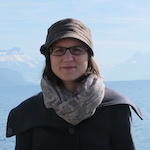 Francesca Dell’Oro is an associate researcher at the University of Lausanne. She studied Historical Linguistics and Classical Philology at the University of Milan (2004) and obtained a PhD in “Philology and Linguistics” from the University of Chieti-Pescara (2008). She was a post-doctoral fellow at the universities of Zurich (2008-2015) and Oxford (2011) and a non-tenured professor in Classics and Linguistics at the university of Grenoble Alpes (2013-2015). She has published a monograph about the history of the ‘Caland’ notions (Leggi, sistemi e leghe suffissali ‘di Caland’: Storia della questione ‘Caland’ come problema teorico della linguistica indoeuropea, Innsbruck, 2015). She is currently preparing a new edition of the lead tablets from Styra (Euboea) with palaeographic, linguistic and onomastic commentaries. She is also writing a monograph on the Euboean dialect paying special attention to contact phenomena in the motherland and in the colonies as well as the development of specific colonial dialectal features. The purpose of her research at CHS is to develop an interdisciplinary model, based on sociolinguistics, epigraphy and history, in order to achieve a fitting description of linguistic complex environments like those of the Euboean-speaking areas between the 8th and the 4th century BCE.
Francesca Dell’Oro is an associate researcher at the University of Lausanne. She studied Historical Linguistics and Classical Philology at the University of Milan (2004) and obtained a PhD in “Philology and Linguistics” from the University of Chieti-Pescara (2008). She was a post-doctoral fellow at the universities of Zurich (2008-2015) and Oxford (2011) and a non-tenured professor in Classics and Linguistics at the university of Grenoble Alpes (2013-2015). She has published a monograph about the history of the ‘Caland’ notions (Leggi, sistemi e leghe suffissali ‘di Caland’: Storia della questione ‘Caland’ come problema teorico della linguistica indoeuropea, Innsbruck, 2015). She is currently preparing a new edition of the lead tablets from Styra (Euboea) with palaeographic, linguistic and onomastic commentaries. She is also writing a monograph on the Euboean dialect paying special attention to contact phenomena in the motherland and in the colonies as well as the development of specific colonial dialectal features. The purpose of her research at CHS is to develop an interdisciplinary model, based on sociolinguistics, epigraphy and history, in order to achieve a fitting description of linguistic complex environments like those of the Euboean-speaking areas between the 8th and the 4th century BCE.
 Chiara Ferella (PhD University of Pisa) studied Greek and Latin at the Universities of L’Aquila (Italy), Cambridge, Munich and Pisa. She was a postdoctoral Fellow at the Munich School of Ancient Philosophy. Since 2015 she has been a postdoctoral Fellow at the Excellence Cluster Topoi in Berlin and, since October 2016, a visiting lecturer of Greek Philology at the Free University of Berlin. Her research interests focus above all on early Greek philosophy, ancient Greek literature and religion. In Berlin she has been working on metaphor as a mode of argumentation in early Greek philosophy. She has published especially on pre-Socratics, Orphisms and on metaphor use in early Greek philosophical discourse. The Fellowship at CHS will be used to inquire above all into the religious and philosophical relevance of the Pythagorean symbola.
Chiara Ferella (PhD University of Pisa) studied Greek and Latin at the Universities of L’Aquila (Italy), Cambridge, Munich and Pisa. She was a postdoctoral Fellow at the Munich School of Ancient Philosophy. Since 2015 she has been a postdoctoral Fellow at the Excellence Cluster Topoi in Berlin and, since October 2016, a visiting lecturer of Greek Philology at the Free University of Berlin. Her research interests focus above all on early Greek philosophy, ancient Greek literature and religion. In Berlin she has been working on metaphor as a mode of argumentation in early Greek philosophy. She has published especially on pre-Socratics, Orphisms and on metaphor use in early Greek philosophical discourse. The Fellowship at CHS will be used to inquire above all into the religious and philosophical relevance of the Pythagorean symbola.
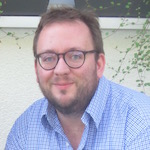 Thomas Koentges is an Akademischer Assistent (Assistant Professor) at the Alexander-von-Humboldt Department of Digital Humanities at the University of Leipzig, Germany. After completing a traditional PhD summa cum laude in Classics (University of Otago, New Zealand), his research broadened and is now located in digital humanities: in particular, the effects of the organization and delivery of cultural heritage metadata on the work of humanities researchers, the computational research of historical languages, topic modelling, digital stemmatology, and citizen science, as well as the research and production of digital editions and the curation of digital images of manuscripts. His topic-modelling methods have been used when researching Latin literature at the University of Leipzig and have since been applied to other morphologically complex languages, including Ancient Greek, Arabic, Sanskrit, and Persian. Several higher education institutions are using the alpha version of his Latent-Dirichlet-Allocation topic modelling app, (Meletē)ToPān v.0.2. During the CHS fellowship he plans to apply these methods to the Corpus Platonicum and the corpus of Greek literature collected and enriched by CHS and the Perseus Project.
Thomas Koentges is an Akademischer Assistent (Assistant Professor) at the Alexander-von-Humboldt Department of Digital Humanities at the University of Leipzig, Germany. After completing a traditional PhD summa cum laude in Classics (University of Otago, New Zealand), his research broadened and is now located in digital humanities: in particular, the effects of the organization and delivery of cultural heritage metadata on the work of humanities researchers, the computational research of historical languages, topic modelling, digital stemmatology, and citizen science, as well as the research and production of digital editions and the curation of digital images of manuscripts. His topic-modelling methods have been used when researching Latin literature at the University of Leipzig and have since been applied to other morphologically complex languages, including Ancient Greek, Arabic, Sanskrit, and Persian. Several higher education institutions are using the alpha version of his Latent-Dirichlet-Allocation topic modelling app, (Meletē)ToPān v.0.2. During the CHS fellowship he plans to apply these methods to the Corpus Platonicum and the corpus of Greek literature collected and enriched by CHS and the Perseus Project.
 Lena Lambrinou, architect-archaeologist, originally from Chania, Crete, has been employed since 2000 by the Acropolis Monuments Restoration Service (YSMA), where she serves on the Greek Ministry of Culture’s restoration team for the Parthenon. Her primary areas of professional interest include Greek archaeology, the architectural history of ancient Greece, Neoclassical architecture and the theoretical background behind contemporary restoration practices. In completing her PhD (2015, University of Athens), she wrote a dissertation entitled The Late Roman Repair of the Parthenon and Its Evidence for Hellenistic Stoic Buildings in Athens. Her latest article, on restoration issues, “Ancient Ruins and their Preservation: The Case of the Parthenon’s East Porch,” recently appeared in Blackwell’s A Companion to Greek Architecture (2016, Margaret Miles, ed.). During the CHS-DAI fellowship, Lambrinou will explore the development of the classical Doric style of central Greece under the influences of Western Minor Asia and especially the Pergamene architecture and Macedonia throughout the Hellenistic and Roman periods.
Lena Lambrinou, architect-archaeologist, originally from Chania, Crete, has been employed since 2000 by the Acropolis Monuments Restoration Service (YSMA), where she serves on the Greek Ministry of Culture’s restoration team for the Parthenon. Her primary areas of professional interest include Greek archaeology, the architectural history of ancient Greece, Neoclassical architecture and the theoretical background behind contemporary restoration practices. In completing her PhD (2015, University of Athens), she wrote a dissertation entitled The Late Roman Repair of the Parthenon and Its Evidence for Hellenistic Stoic Buildings in Athens. Her latest article, on restoration issues, “Ancient Ruins and their Preservation: The Case of the Parthenon’s East Porch,” recently appeared in Blackwell’s A Companion to Greek Architecture (2016, Margaret Miles, ed.). During the CHS-DAI fellowship, Lambrinou will explore the development of the classical Doric style of central Greece under the influences of Western Minor Asia and especially the Pergamene architecture and Macedonia throughout the Hellenistic and Roman periods.
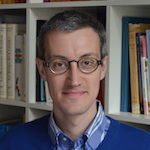 Jean Lempire received his PhD from the University of Louvain, Belgium (2010) and has research interests in history of Greek astronomy, Byzantine astronomical manuscripts and Easter date literature. His research aims to edit Greek astronomical texts from the Alexandrian (5th-6th c.) and the Byzantine (7th-15th c.) period, and to analyze the milieus in which Byzantine astronomical manuscripts circulated. He has published an edition – together with translation and commentary – of the first astronomical treatise written in Constantinople (7th c.). Jean Lempire is also Lecturer in History of Science of Antiquity at the University of Louvain. At CHS, he plans to prepare an edition of Isaac Argyrus’ astronomical treatises (14th c.).
Jean Lempire received his PhD from the University of Louvain, Belgium (2010) and has research interests in history of Greek astronomy, Byzantine astronomical manuscripts and Easter date literature. His research aims to edit Greek astronomical texts from the Alexandrian (5th-6th c.) and the Byzantine (7th-15th c.) period, and to analyze the milieus in which Byzantine astronomical manuscripts circulated. He has published an edition – together with translation and commentary – of the first astronomical treatise written in Constantinople (7th c.). Jean Lempire is also Lecturer in History of Science of Antiquity at the University of Louvain. At CHS, he plans to prepare an edition of Isaac Argyrus’ astronomical treatises (14th c.).
 Alexandra Lianeri is Assistant Professor of Classics and Translation Theory at the Aristotle University of Thessaloniki. Her research focuses on the reception of classics in modern European thought over the eighteenth and nineteenth centuries. It examines how the engagement with the Greek and Roman pasts has shaped the antinomies of modern historiographical and political concepts, such as democracy, history, and historical time. She is writing a book on the conceptual history of democracy (Towards a New Athens? Translating Dēmokratia in Nineteenth-Century Britain, Oxford UP, forthcoming), and has edited volumes on ancient and modern historiography (The Western Time of Ancient History: Historiographical Encounters with the Greek and Roman Pasts, Cambridge UP, 2011; Knowing Future Time in and through Greek Historiography, De Gruyter 2016)), as well as the reception and translation of classics (Translation and the Classic: Identity as Change in the History of Culture, coedited with V. Zajko, Oxford UP, 2008; Companion to the Translation of Greek and Latin Epic, with R. Armstrong, Blackwell, forthcoming).
Alexandra Lianeri is Assistant Professor of Classics and Translation Theory at the Aristotle University of Thessaloniki. Her research focuses on the reception of classics in modern European thought over the eighteenth and nineteenth centuries. It examines how the engagement with the Greek and Roman pasts has shaped the antinomies of modern historiographical and political concepts, such as democracy, history, and historical time. She is writing a book on the conceptual history of democracy (Towards a New Athens? Translating Dēmokratia in Nineteenth-Century Britain, Oxford UP, forthcoming), and has edited volumes on ancient and modern historiography (The Western Time of Ancient History: Historiographical Encounters with the Greek and Roman Pasts, Cambridge UP, 2011; Knowing Future Time in and through Greek Historiography, De Gruyter 2016)), as well as the reception and translation of classics (Translation and the Classic: Identity as Change in the History of Culture, coedited with V. Zajko, Oxford UP, 2008; Companion to the Translation of Greek and Latin Epic, with R. Armstrong, Blackwell, forthcoming).
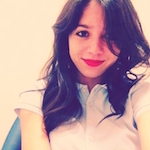 Laura Massetti was trained in classical philology and music in Milan. She received a PhD in Historical and Comparative Linguistics at University of Cologne in 2016. Her research addresses linguistic and textual issues, namely, word-formation, nominal composition, phraseological analysis and cultural reconstruction (religion, mythology and poetry) of Greek and other Indo-European (IE) languages. During her fellowship at CHS she will be working on a project about comparative mythology, “Kestós Himás. Phraseology and Thematic Indo-European Inherited Structures in Greek Myth”.
Laura Massetti was trained in classical philology and music in Milan. She received a PhD in Historical and Comparative Linguistics at University of Cologne in 2016. Her research addresses linguistic and textual issues, namely, word-formation, nominal composition, phraseological analysis and cultural reconstruction (religion, mythology and poetry) of Greek and other Indo-European (IE) languages. During her fellowship at CHS she will be working on a project about comparative mythology, “Kestós Himás. Phraseology and Thematic Indo-European Inherited Structures in Greek Myth”.
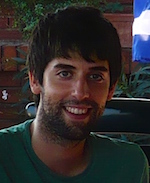 Adrià Piñol-Villanueva received his PhD from Universitat Autònoma de Barcelona in 2016. His research interests lie in the study of Greek Law, Greek epigraphy, Archaic Greek Literature and Euripides. As a CHS Fellow, he will spend the 2017-2018 academic year researching and writing a monograph based on his UAB dissertation (“The Foreigner in Archaic Greece: Access to Land and to Justice”) with additional focus on a third subject: foreigners’ access to the sacra of the polis. Thus the monograph will explore how the main concrete differences between ‘citizen’ and ‘foreigner’ in archaic Greece seem to lie in the degree of recognition of certain rights in the economic, juridical and religious fields, namely 1) the right to own land and houses, 2) the right to access local courts as either plaintiff or defendant in a lawsuit, and 3) the right to participate in local cults, access temples and sanctuaries and even assume religious offices.
Adrià Piñol-Villanueva received his PhD from Universitat Autònoma de Barcelona in 2016. His research interests lie in the study of Greek Law, Greek epigraphy, Archaic Greek Literature and Euripides. As a CHS Fellow, he will spend the 2017-2018 academic year researching and writing a monograph based on his UAB dissertation (“The Foreigner in Archaic Greece: Access to Land and to Justice”) with additional focus on a third subject: foreigners’ access to the sacra of the polis. Thus the monograph will explore how the main concrete differences between ‘citizen’ and ‘foreigner’ in archaic Greece seem to lie in the degree of recognition of certain rights in the economic, juridical and religious fields, namely 1) the right to own land and houses, 2) the right to access local courts as either plaintiff or defendant in a lawsuit, and 3) the right to participate in local cults, access temples and sanctuaries and even assume religious offices.
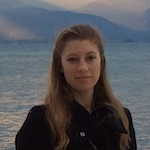 Catherine Pratt (PhD UCLA) is an Assistant Professor of Greek Archaeology at the University of Western Ontario. Her research focuses on the development of socioeconomic complexity in the pre-Classical Mediterranean, with special attention to issues of value construction, commodification, and cultural interaction. Her recent fieldwork involves excavations at the Mycenaean Palace of Nestor at Pylos, Greece, and the Minoan town of Palaikastro on Crete. She has published articles on the Minoan political economy, Early Iron Age cultural interaction, and archaic Greek amphorae. In addition, she has recently completed a monograph-length project on the role of olive oil and wine in the pre-Classical Greek cultural economy. While at the CHS, she plans to work on a new project titled, Gift of Athena: Olive Oil and the Making of Athens. This project incorporates archaeological, literary, and epigraphic evidence, including an interdisciplinary approach to the Panathenaic amphora, to understand better the changing roles of olive oil within the socio-economic identity of ancient Athens.
Catherine Pratt (PhD UCLA) is an Assistant Professor of Greek Archaeology at the University of Western Ontario. Her research focuses on the development of socioeconomic complexity in the pre-Classical Mediterranean, with special attention to issues of value construction, commodification, and cultural interaction. Her recent fieldwork involves excavations at the Mycenaean Palace of Nestor at Pylos, Greece, and the Minoan town of Palaikastro on Crete. She has published articles on the Minoan political economy, Early Iron Age cultural interaction, and archaic Greek amphorae. In addition, she has recently completed a monograph-length project on the role of olive oil and wine in the pre-Classical Greek cultural economy. While at the CHS, she plans to work on a new project titled, Gift of Athena: Olive Oil and the Making of Athens. This project incorporates archaeological, literary, and epigraphic evidence, including an interdisciplinary approach to the Panathenaic amphora, to understand better the changing roles of olive oil within the socio-economic identity of ancient Athens.
 Kim Shelton (PhD University of Pennsylvania) is Associate Professor of Classics and the Graduate Group in Ancient History and Mediterranean Archaeology, and Director of the Nemea Center for Classical Archaeology at the University of California, Berkeley. She is an Aegean prehistorian with interests in domestic architecture, ceramic production and economy, and religious ritual. She is the author of several publications on Mycenaean pottery, figurines, cemeteries, the Tsountas House Area of the Cult Center, and her excavation at Petsas House, Mycenae. She also has on-going excavations at the panhellenic Sanctuary of Zeus in Nemea and, in a new collaboration with the Korinthian Ephorate of Antiquities, at the Mycenaean cemetery of Aidonia, where the TAPHOS project is preserving cultural heritage through the excavation of partly looted and unlooted chamber tombs together with public outreach and education. At CHS, she will be working on the final publication of the Petsas House excavation.
Kim Shelton (PhD University of Pennsylvania) is Associate Professor of Classics and the Graduate Group in Ancient History and Mediterranean Archaeology, and Director of the Nemea Center for Classical Archaeology at the University of California, Berkeley. She is an Aegean prehistorian with interests in domestic architecture, ceramic production and economy, and religious ritual. She is the author of several publications on Mycenaean pottery, figurines, cemeteries, the Tsountas House Area of the Cult Center, and her excavation at Petsas House, Mycenae. She also has on-going excavations at the panhellenic Sanctuary of Zeus in Nemea and, in a new collaboration with the Korinthian Ephorate of Antiquities, at the Mycenaean cemetery of Aidonia, where the TAPHOS project is preserving cultural heritage through the excavation of partly looted and unlooted chamber tombs together with public outreach and education. At CHS, she will be working on the final publication of the Petsas House excavation.
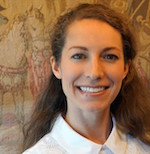 Anna Sitz’s PhD at the University of Pennsylvania focuses on the habit of writing inscriptions on temples from antiquity to the early Christian period in Greece and Asia Minor. Her research interests combine archaeology with epigraphy and span a broad expanse of time, with a focus in late antiquity. She spent two years at the American School of Classical Studies in Athens and one year in Munich as a guest researcher at Ludwig-Maximilians-Universität. Anna has published an article documenting inscriptions in Byzantine Cappadocia and arguing that a local oral tradition lay behind these texts. She has excavated at Corinth (Greece) and Alabanda (Turkey), and currently at Labraunda (Turkey). She has previously received a CAORC Mediterranean Fellowship and a Phi Beta Kappa Sibley Fellowship. At the DAI/CHS Anna will prepare a catalogue of temple inscriptions for publication and integrate these texts with their architectural and spatial contexts.
Anna Sitz’s PhD at the University of Pennsylvania focuses on the habit of writing inscriptions on temples from antiquity to the early Christian period in Greece and Asia Minor. Her research interests combine archaeology with epigraphy and span a broad expanse of time, with a focus in late antiquity. She spent two years at the American School of Classical Studies in Athens and one year in Munich as a guest researcher at Ludwig-Maximilians-Universität. Anna has published an article documenting inscriptions in Byzantine Cappadocia and arguing that a local oral tradition lay behind these texts. She has excavated at Corinth (Greece) and Alabanda (Turkey), and currently at Labraunda (Turkey). She has previously received a CAORC Mediterranean Fellowship and a Phi Beta Kappa Sibley Fellowship. At the DAI/CHS Anna will prepare a catalogue of temple inscriptions for publication and integrate these texts with their architectural and spatial contexts.
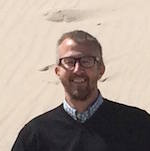 M. D. Usher (Mark) is a professor of Classics at the University of Vermont. In addition to books and articles in the field of Classics, he has published books for children, poems, translations, and two opera libretti. His CHS project is a book about systems and sustainability in ancient life and thought. With his wife Caroline he also owns and operates Works & Days Farm, a diversified farmstead that produces lamb, eggs, honey, and maple syrup on 125 acres.
M. D. Usher (Mark) is a professor of Classics at the University of Vermont. In addition to books and articles in the field of Classics, he has published books for children, poems, translations, and two opera libretti. His CHS project is a book about systems and sustainability in ancient life and thought. With his wife Caroline he also owns and operates Works & Days Farm, a diversified farmstead that produces lamb, eggs, honey, and maple syrup on 125 acres.
 Irini-Fotini Viltanioti is a Research Fellow at the De Wulf–Mansion Centre for Ancient, Medieval, and Renaissance Philosophy of KU Leuven and an Associated Member of the Faculty of Philosophy at the University of Oxford. She specializes in ancient philosophy, with a focus on early Greek philosophy and late antique Neoplatonism. Recent publications include L’harmonie des Sirènes du pythagorisme ancien à Platon (De Gruyter 2015; Prize of the Royal Academy of Belgium) and Divine Powers in Late Antiquity (OUP 2017; co-edited). At CHS, she will be finalizing her second monograph, Studies on Philosophy and Religion in Porphyry of Tyre, in relation with the KU Leuven project on Epistemic Authority of Aristotle in Late Ancient Commentaries on Plato.
Irini-Fotini Viltanioti is a Research Fellow at the De Wulf–Mansion Centre for Ancient, Medieval, and Renaissance Philosophy of KU Leuven and an Associated Member of the Faculty of Philosophy at the University of Oxford. She specializes in ancient philosophy, with a focus on early Greek philosophy and late antique Neoplatonism. Recent publications include L’harmonie des Sirènes du pythagorisme ancien à Platon (De Gruyter 2015; Prize of the Royal Academy of Belgium) and Divine Powers in Late Antiquity (OUP 2017; co-edited). At CHS, she will be finalizing her second monograph, Studies on Philosophy and Religion in Porphyry of Tyre, in relation with the KU Leuven project on Epistemic Authority of Aristotle in Late Ancient Commentaries on Plato.
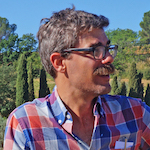 Alex Walthall is an archaeologist who specializes in the material culture of ancient Sicily. He is an Assistant Professor in the Department of Classics at the University of Texas at Austin. When not teaching in the classroom, Alex directs archaeological excavations at the site of Morgantina in central Sicily (www.themagazzino.org). During his time as a CHS Fellow, Alex will work on completing his forthcoming book which utilizes archaeological, numismatic, and epigraphic material as a means of documenting political consolidation and economic development in eastern Sicily from the rise of the Syracusan monarch Hieron II to the island’s absorption into the Roman Empire.
Alex Walthall is an archaeologist who specializes in the material culture of ancient Sicily. He is an Assistant Professor in the Department of Classics at the University of Texas at Austin. When not teaching in the classroom, Alex directs archaeological excavations at the site of Morgantina in central Sicily (www.themagazzino.org). During his time as a CHS Fellow, Alex will work on completing his forthcoming book which utilizes archaeological, numismatic, and epigraphic material as a means of documenting political consolidation and economic development in eastern Sicily from the rise of the Syracusan monarch Hieron II to the island’s absorption into the Roman Empire.
